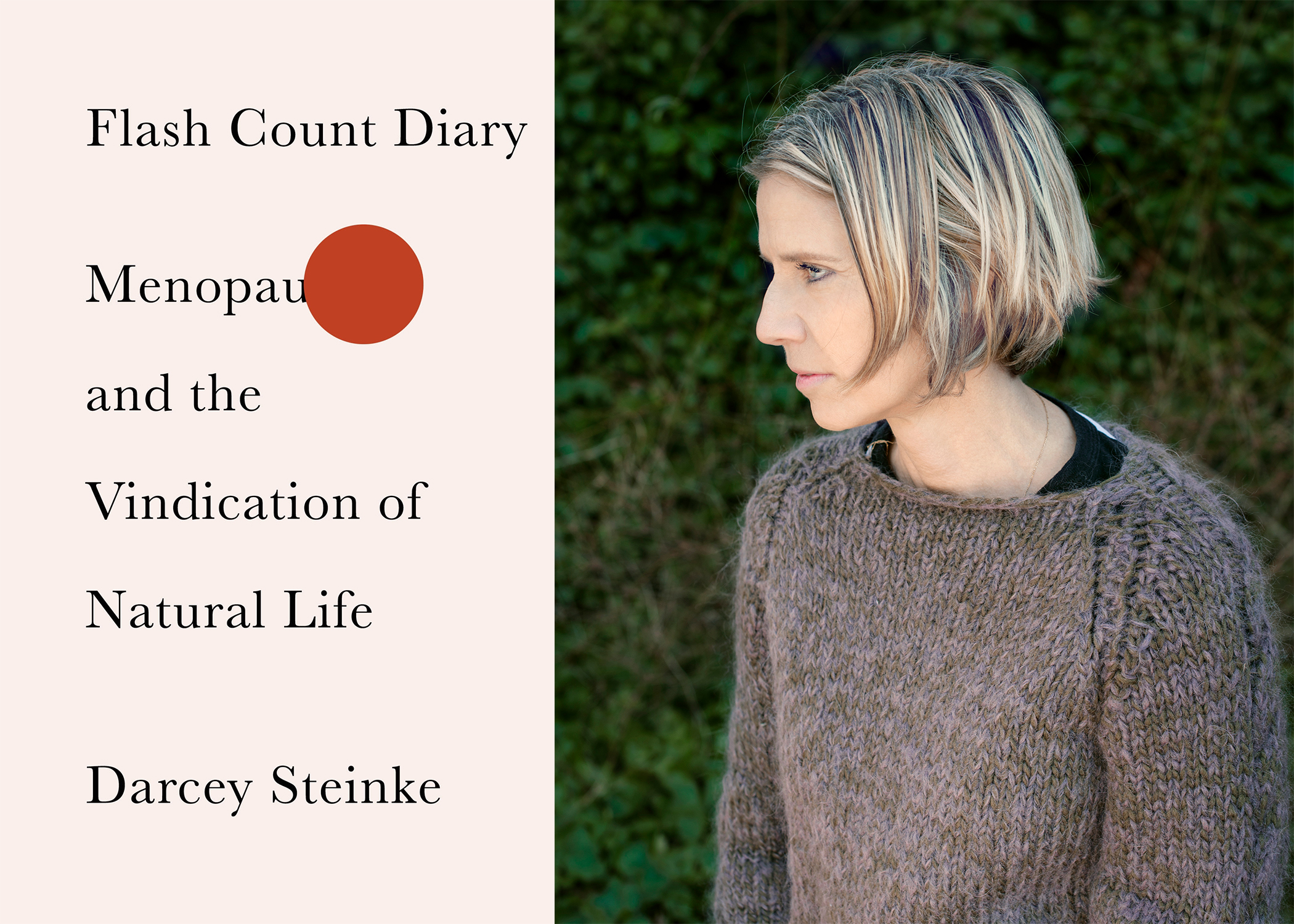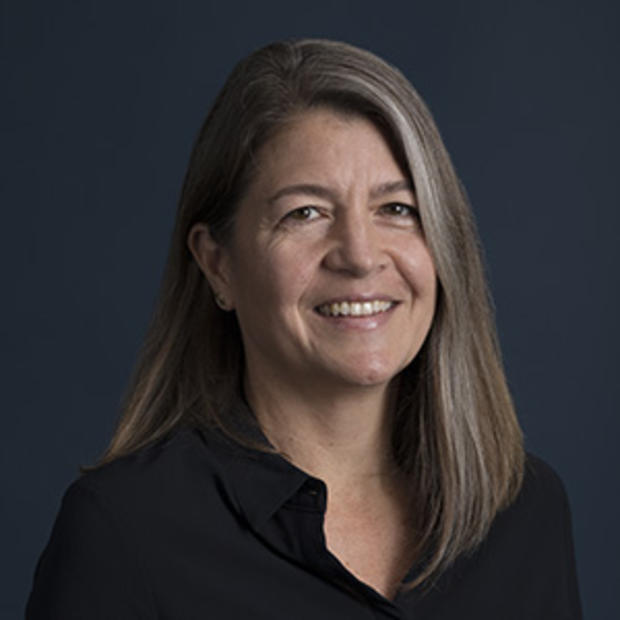In her new book, Flash Count Diary: Menopause and the Vindication of Natural Life, Steinke explains how this surprising cross-species connection led her on a cross-country quest to see the centenarian southern resident orca “Granny” (aka J2, who has since died). The trip was a kind of feminist version of Moby-Dick, but instead of hoping to harpoon a white whale, Steinke sought solace from a black-and-white elder.

When she was 50 and having frequent, intense hot flashes (not to mention insomnia, fatigue and anxiety), Steinke began looking around for something — anything — positive about menopause. She noted that in pop culture, menopause is referred to almost exclusively as a punchline, often via dismissive or self-deprecating jokes about hot flashes or mood swings. The self-help books she read couched menopause as a disease that should be fixed, usually with hormone replacement therapy (HRT, which has many risks and unknowns). From pioneering menopause writer Gail Sheehy (The Silent Passage, 1992) to 1970s television star Suzanne Somers (The Sexy Years, 2004), experts promoted HRT as the best shot at “keeping the veneer of femininity intact.” To Steinke, everything read like “boilerplate misogyny.”
Her research unearthed a long history of dubious “cures,” from transfusions of dog’s blood to vinegar sponge baths to putting a magnet in your underpants. All of which, she says, seem a little less strange once you realize that the most popular hormone replacement treatment, Premarin, is made from the urine of pregnant horses.
“Nobody wants to hear about menopause, not even menopausal women themselves,” she writes in Flash Count. It’s an unspoken secret that many women are embarrassed to discuss. Even among middle-aged women, the topic of menopause and perimenopause (the years-long, symptom-heavy suite of bodily changes that lead up to the final cessation of periods) has a hushed air of shame — something to be kept under wraps, because culturally it signifies “your usefulness is over.”
When she found an article in the journal Nature about how postmenopausal killer whales serve as leaders and knowledge bearers in their pods, Steinke felt a glimmer of hope. While menopausal humans are ridiculed or ignored, menopausal orcas are critical members of their society. Given the lack of nuanced human narratives about this significant life change, Steinke latched onto the cetacean story. She took a plane to Seattle, a van to Anacortes, a ferry to San Juan Island and a sea kayak out into the Salish Sea.
Part memoir, part widely researched treatise (with citations ranging from The Incredible Hulk to Simone de Beauvoir), Flash Count argues for a new view of menopause, one that openly acknowledges and embraces it as a phase of life that is confounding and physically nightmarish, but ultimately pregnant with possibility.
“I wanted to fight back, to resist how the culture denigrates and stigmatizes menopausal women,” Steinke writes. She goes on to quote renowned feminist Germaine Greer, author of The Change (1991): “The menopausal woman is a prisoner of a stereotype and will not be rescued from it until she has begun to tell her own story.” And so, Steinke does just that.
I spoke with Steinke in advance of her upcoming appearance at Town Hall Seattle, where she’ll be in conversation with Dr. Deborah Giles, scientist and lecturer at the University of Washington’s Friday Harbor Labs on San Juan Island.
This interview has been edited and condensed.
What was it about that article in Nature that clicked for you?
I found out that not only do killer whales go through menopause, but the post-reproductive orcas go on to lead their pods. And in that same article they talked about how menopause is an evolutionary puzzle because most creatures breed until the end of their life cycles — it’s a principle of Darwinian fitness to have as many offspring as you can. The article said menopause probably evolved in human communities for the same reason as in whale communities: because around 50, women get so smart and knowledgeable that they’re more valuable to their communities as leaders than as breeders. This was an idea that I really, really liked.
So you got obsessed.
I got completely obsessed. There’s a lot of YouTube footage of the southern resident killer whales in the Salish Sea, and the University of Washington’s Center for Whale Research has a live-linked hydrophone — so I could listen 24 hours a day for whale sounds. Sometimes I heard them calling to each other. I also got obsessed with Lolita, who was from L Pod, and was taken 48 years ago from the Salish Sea and is still held captive at Miami Seaquarium. So I went down to see her. And then I flew to Seattle, went straight to Friday Harbor, got in a kayak, and on my first day out, I saw Granny! She was such an iconic whale. It was unbelievable. I’m still not really over it. I’ll never get over it.
But in the book you say the moment wasn’t like the movie Born Free. It was more mysterious.
Right. When I saw Granny it wasn’t like we had this big connection, like, “Ooh, we are one.” I actually felt like her look said, “What the frig are you doing? Why are you guys out here?” I think that’s related to menopause. The passage is mysterious — it’s not like it’s all powerful. I definitely suffered some. But there was also some fascination with what was happening to my body, my mind, my gender, my sexuality. You’re almost like molting. It didn’t seem completely negative; it seemed more like, human. And real in a way that was not sugar-coated, and not necessarily empowering, but a human experience that should be felt and honored.
Flash Count Diary is currently Amazon’s No. 1 bestseller … in the menopause section. Most of the other books in that category are about “solving the menopause problem” with hormones or diets or essential oils.
I know, I love it! It’s like, The Hormone Cure, The Estrogen Cure, Menopause Is a Disease, You Need to Fix Yourself. I’m not totally against hormones, but I’m so happy to be beating all the hormone books! When I was going through menopause — I think I’m at the end now, but I’m not sure — I discovered there are so few books that talk about menopause as something that is nuanced. It was always about how to get rid of the symptoms. There was nothing that was really engaged and respectful. When I started to have hot flashes, they were really uncomfortable, but they were also fascinating as a bodily phenomenon. I found them exquisite in a weird way, too — just to be incandescent with heat.
Alternately there are rah-rah, empowerment narratives, such as, “Hot flashes are power surges!”
As annoying as the menopause books trying to push everyone onto hormones are, those other books that are like, You’ll rise like a phoenix through menopause! were really annoying to me, too. Those are equally unnuanced. ... I’m not completely surprised that I’ve landed in the women’s health world, and I guess I’m kind of happy about it. But part of the conclusion of the book is that we don’t need to be ashamed, we don’t need to get rid of it, we should live our own truth. So I like to think that my book is somewhat more punk rock than the others.
It seems like lately there have been a few more menopausal storylines on television. Do you watch Better Things? Pamela Adlon’s character is dealing with her changing body and new life stage in the current season.
Oh yeah, that’s a great show. I think she has a hot flash in one of the first episodes. There is also that incredible scene in Season 2 of Fleabag when the older woman [Kristin Scott Thomas] talks about how wonderful life is postmenopause. But I’m very sensitive to menopause being made fun of on TV, like when hot flashes are laughed at, even if by women. That stuff makes me kind of crazy — do we make fun of people who are having seizures? I’m not saying menopause is an illness, but it is a kind of bodily suffering. I know humor can be a release but most of the jokes are just boilerplate misogyny.
When I was reading Flash Count I found that I sometimes felt embarrassed to be carrying around a book with “menopause” on the cover. And then I’d get mad that I was embarrassed by this thing that happens to half the population.
Yes, other women have told me the same thing. They think, “Wow, I realized I’m a little ashamed of this, and then I realized how crazy that was.” I mean, if you were reading a book about pregnancy or birth you wouldn’t feel embarrassed. Or maybe even a book about menstruation, because now we have this “menstruation power” movement. That’s connected to the idea in the book that women are mostly valued for their sexuality and their motherhood, so after those days are over, there is some shame attached to menopause. That’s misogyny, too. It’s just not a phase when men find women interesting.
As the author of many fiction titles, did you ever have qualms about writing a personal menopause book?
At the very beginning I wondered, would this taint me as being “the menopause writer”? But pretty quickly I realized even thinking that shows how messed up the culture is around all this. And I started getting kind of angry. I decided, I’m gonna write the most honest book about my own experience, and say what I really think about the way the medical world treats this condition. I got buoyed up by my own fury, so that dealt with the shame I might’ve felt.
“Storylessness has been women’s biggest problem,” you quote cultural critic Katha Pollitt as saying. Her (and your) point is that while we have countless books about women coming of age, embracing sexuality, falling in love and starting a family, the roster of stories by and about women experiencing menopause is measly.
That’s why I wrote the book, right? And that’s kind of why I attached myself to whales, too. I couldn’t find any human stories about menopause, so I got attached to Granny. Two books I did like were The Change by Germain Greer, a philosophical feminist study of menopause and midlife, and Colette’s novel Break of Day, which is a story about Colette’s own menopause and her flirtation with a younger man, a meditation on her sexuality at this age. There is also Simone de Beauvoir’s Old Age — people forget she was one of the first writers who would go out and interview people for her books, to hear their experiences, which is something I did for my book too.
Tell me about the subhead: Menopause and the Vindication of Natural Life.
I love the word vindication — in part because of Mary Wollstonecraft, whose book A Vindication of the Rights of Women [1792] was one of the first feminist books and was very important to me as a young person. But also because menopause is not a disease, it doesn’t need to be cured, it needs to be vindicated! I really wanted the book to be engaging — a fun read — but also a treatise or call to arms. I know that writing it definitely saved me from menopause shame, so I hope that can be true for other women as well.



